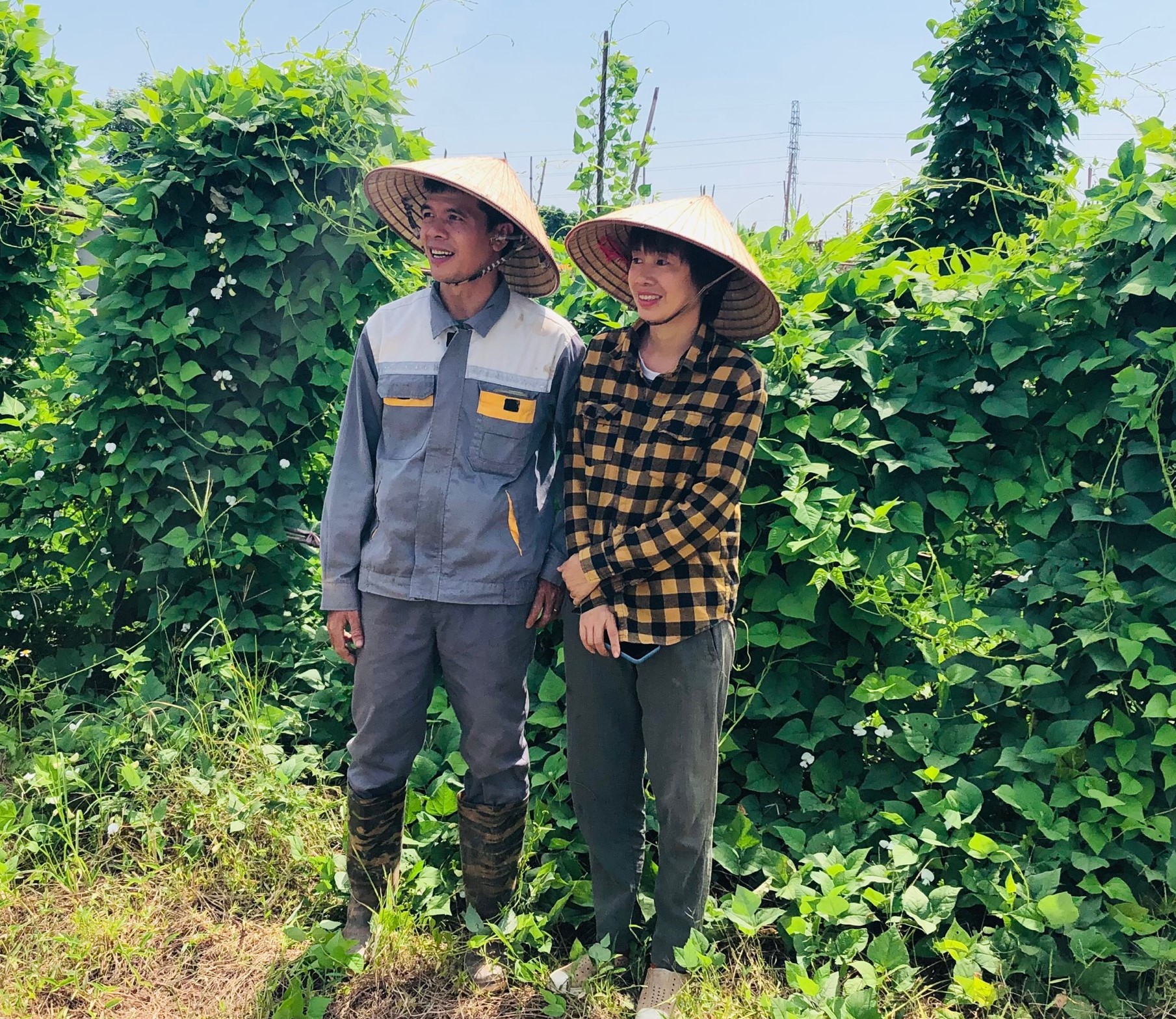From Tasmania to the world is part of the University of Tasmania’s mission. It is beautifully illustrated in the story of alumni Nguyen Thị Duyen and her husband, Dr Nguyen Duc Chinh (MAppSc 2014), who both graduated from their Master of Applied Science at the University and have gone on to practice science in Vietnam as well as set up an organic farm.
We asked Duyen (pronounced Zwiyen) some questions for our Alumni and Friends readers about her farm, life in Vietnam and her time in Tasmania.
Where have your careers taken you since graduating?
After finishing at UTAS, my husband, Chinh, went on to undertake PhD studies in Japan. We then resumed our careers in science in Hanoi but decided that we wanted to start an organic market garden. Organic produce is very hard to source in Vietnam; Vietnam is also a very challenging environment in which to meet the requirements of labelling your produce as “organically grown”.
Can you tell our alumni readers more about your organic farm in Vietnam – what are you growing and what is it like there? Where in Vietnam do you live?
The organic market garden covers 2.5 ha. It is in a low-lying area about 25 km west of Hanoi. The soil was not in good condition when we started so a lot of the initial focus had to be on soil improvement. Manures based on composted fish and plant remains are produced on site; chicken manure is purchased. Besides applying these manures to the beds ahead of planting, liquid slurry is also produced from these composts, which is sprayed directly over the plants as a post-planting fertiliser. Increases in the organic carbon content of the soil is recapturing a stable soil structure with good texture.

A range of vegetables, herbs and fruits are grown, which varies with the season. Our marketing strategy is “from garden to kitchen”. Produce is taken into the city by truck three times a week and then delivered by motorbike to the customers’ doors. We also offer a pick-your-own option which gives customers and their families the experience of seeing and learning how their produce is grown and harvested.
The work required is labour intensive and we employ eight people. Facebook is used to advertise what we offer. It was a slow start and we were unable to sell during the COVID lockdown, but media attention (newspaper, radio and television) has resulted in a large increase in demand for our products. We are also providing advice and training to others who want to set up similar businesses.
Has your Master of Applied Science proven valuable to what you are doing now? What was your master’s on?
The target species of my degree was Vietnamese mint, a herb that has medicinal properties. The topic of my research study was “Essential oil characteristics of Vietnamese mint (Persicaria odorata)”.
"My study gave me an appreciation of the issues that need to be considered and confronted when growing plants for human consumption."
What do you remember most about your time in Tasmania?
It was so good to be able to live in an environment with beautiful landscapes and fresh air. There was also an opportunity to do some work, meet local people and build new friendships. I very much appreciated being a postgraduate student in the School of Agriculture and the support provided during my studies.
Do you have advice for other alumni graduating from University now, or students travelling overseas to study?
You only live once and if an opportunity arises to study and learn in a new environment, you should take it. And if you follow your passions, you will have a happier life and make a bigger and more worthwhile contribution to society.
First published in Alumni and Friends eNews.
If you are a member of the University of Tasmania community and would like to receive this publication, please provide or update your email address.
Top of page: Nguyen Thị Duyen and her husband, Dr Nguyen Duc Chinh. Image: Tamara Zimmerli.


